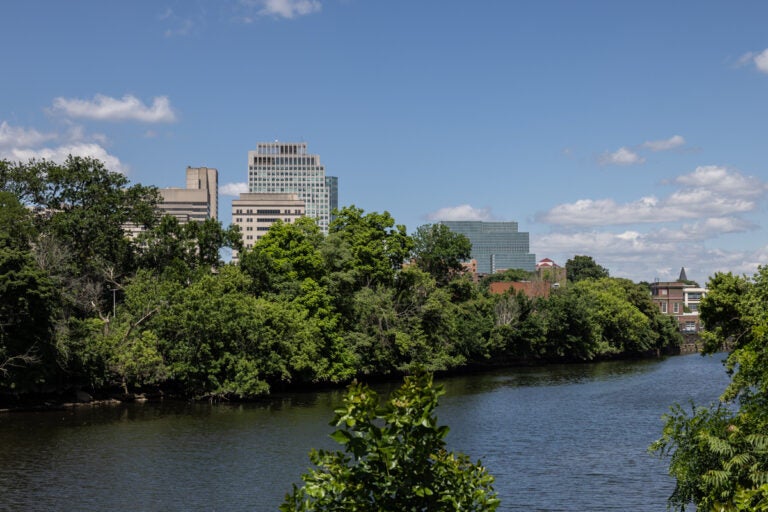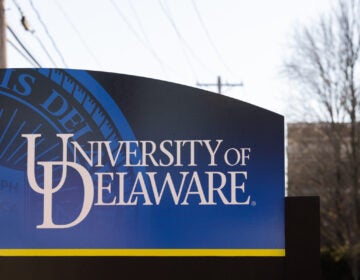A $60 million investment will expand high school and college opportunities for Wilmington students
The multimillion-dollar investment aims to close longstanding gaps for underserved youth and expand higher education opportunities.
Listen 1:29
Wilmington, Del. (Kimberly Paynter/WHYY)
From Philly and the Pa. suburbs to South Jersey and Delaware, what would you like WHYY News to cover? Let us know!
This story was supported by a statehouse coverage grant from the Corporation for Public Broadcasting.
For decades, schools in Wilmington have faced funding and resource challenges, compounded by a complex governance structure that left many students, especially Latino and Black youth, with limited access to culturally responsive teaching and adequate resources. While systemic inequities in education have long impacted students of color and the community at large, recent efforts aim to shift the narrative toward greater opportunity and support for underserved communities.
Over a decade ago, the Longwood Foundation recognized the urgent need to address educational disparities affecting Wilmington’s inner-city students. To support this mission, they began assisting charter schools in finding spaces to operate, as many struggled to secure adequate facilities.
“The original impetus 12 years ago was the continued challenges of our inner city education system, and unfortunately, those continue to exist today,” said Thère du Pont, Longwood’s president and chair of the Community Education Building board. “[Longwood] had a number of charter schools that wanted to serve inner-city students and that couldn’t find a building that either the city or the Department of Education would approve.”
In 2014, the foundation established the CEB, a hub for local charter schools and the University of Delaware. The multi-story building on downtown Wilmington’s central Rodney Square was donated by credit card giant MBNA in 2012 and became a cornerstone for the community’s education efforts.
Now, a new $60 million plan will expand higher education access for Wilmington students, thanks to the recent donation of another building to the Longwood Foundation.
“The new one will add a high school … early college would be added, Delaware State will take a floor and operate their nursing program, it’s their college of Health and Sciences,” du Pont said. “And then very significantly Delaware Law School, which is operated by Widener University, will move from its suburban campus [to] downtown and bring 800 students into the building on day one.”
The project’s funding is a collective effort: $10 million from the city, $10 million from the donation of the Bank of America building, $23 million from the state, and possibly another $10 million from the county. The Longwood Foundation will fill in the remaining gap to ensure the building’s success.
“In the new building, it will mostly be university classrooms, maybe some lecture halls and specifically, we are already working with Delaware Law School to give them a 150 to 200-seat lecture hall,” he added.
After the opening of the higher education building, a new high school will take over the University of Delaware’s current space in the city, with the university relocating to the new building. The facility will feature nine floors: four for the Widener School of Law, one for Delaware State University, two for the University of Delaware, and two for shared spaces. These three buildings will create an educational campus, providing a seamless environment where K-12 students, college students, and community members can collaborate and access resources.
“The intent is so the students from the three universities intermingle whether to grab a meal or simply to socialize as college students do around pong tables and pool tables, or just in a social setting,” he explained. “There’ll be quiet spaces, a library where they can study, and then small group spaces where they can do team learning.”
According to du Pont, CEB boasts a 100% graduation rate thanks to its unique wraparound services for students and families, including healthcare and family advocacy programs. It aims to expand these services at the new higher education hub, especially for the many first-generation students.
“We aspire and intend to expand that to a university level. It’s being applied to a K-12 level. It’s going to look different, and we need to figure out how it is different. But there’s a role to be played there. Particularly, if you think about first-generation college students who are simply unfamiliar with the college process,” he emphasized.
This expansion will add 1,500 more students, marking a significant step toward addressing Wilmington’s historical challenges when it opens in fall of 2028.

Get daily updates from WHYY News!
WHYY is your source for fact-based, in-depth journalism and information. As a nonprofit organization, we rely on financial support from readers like you. Please give today.







